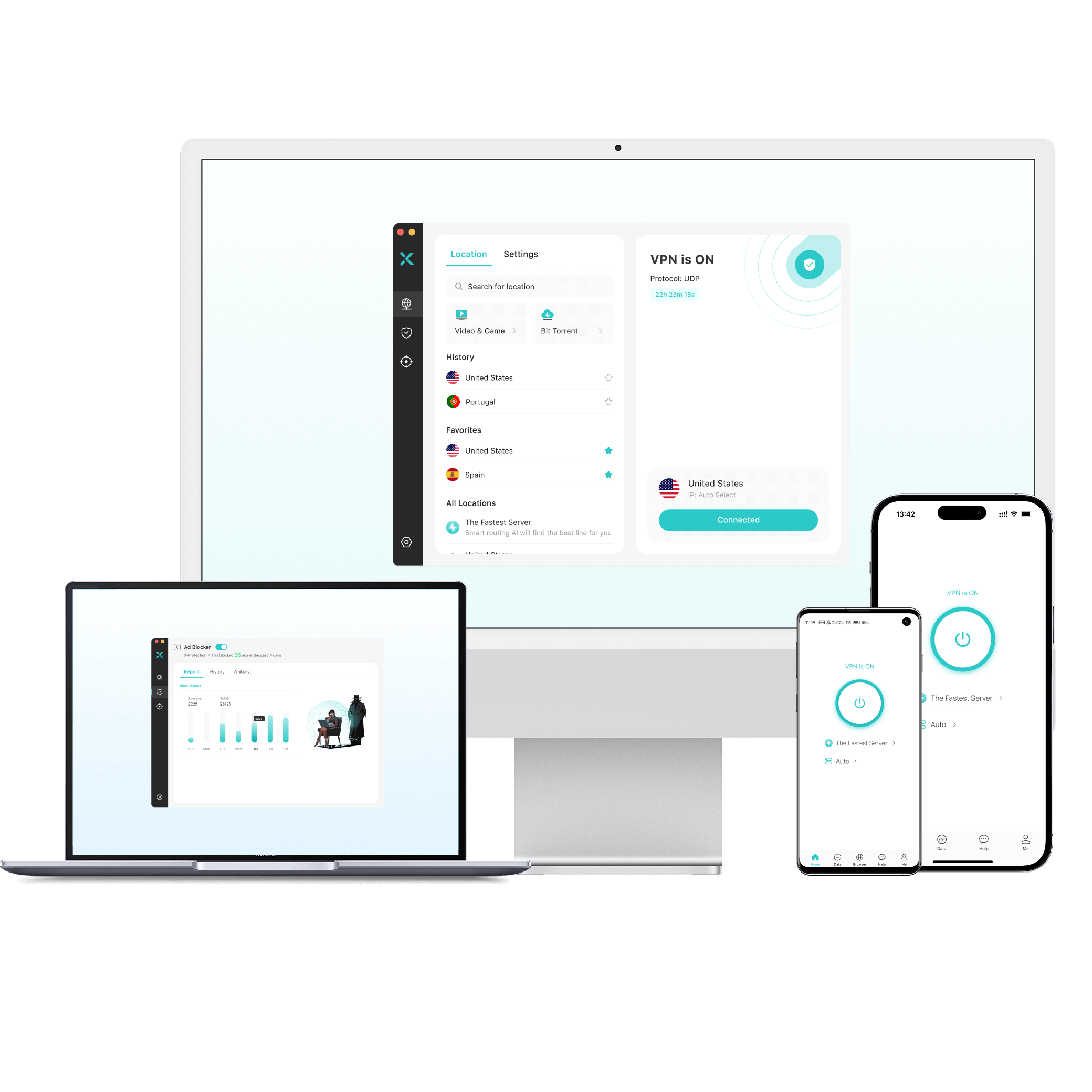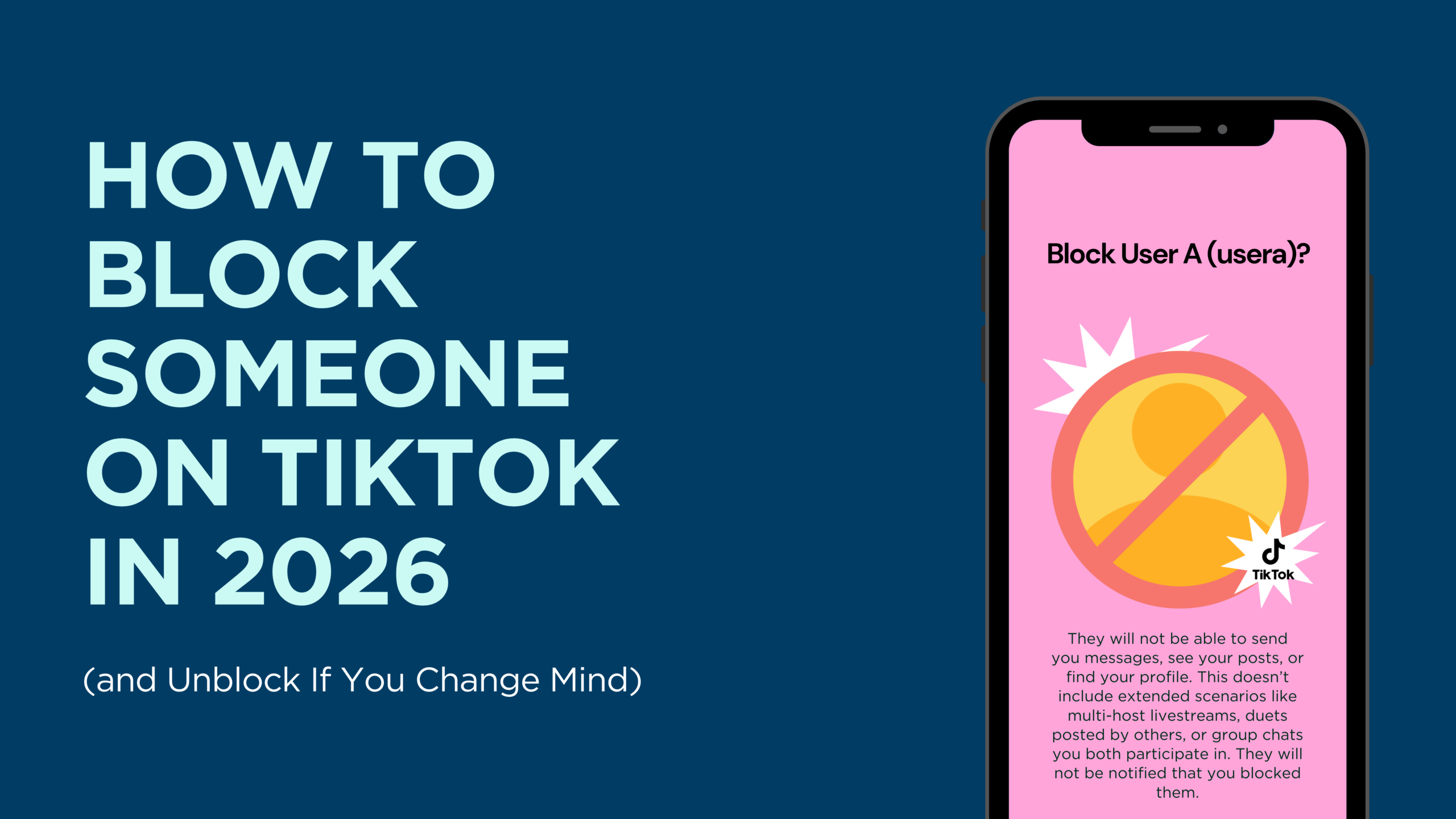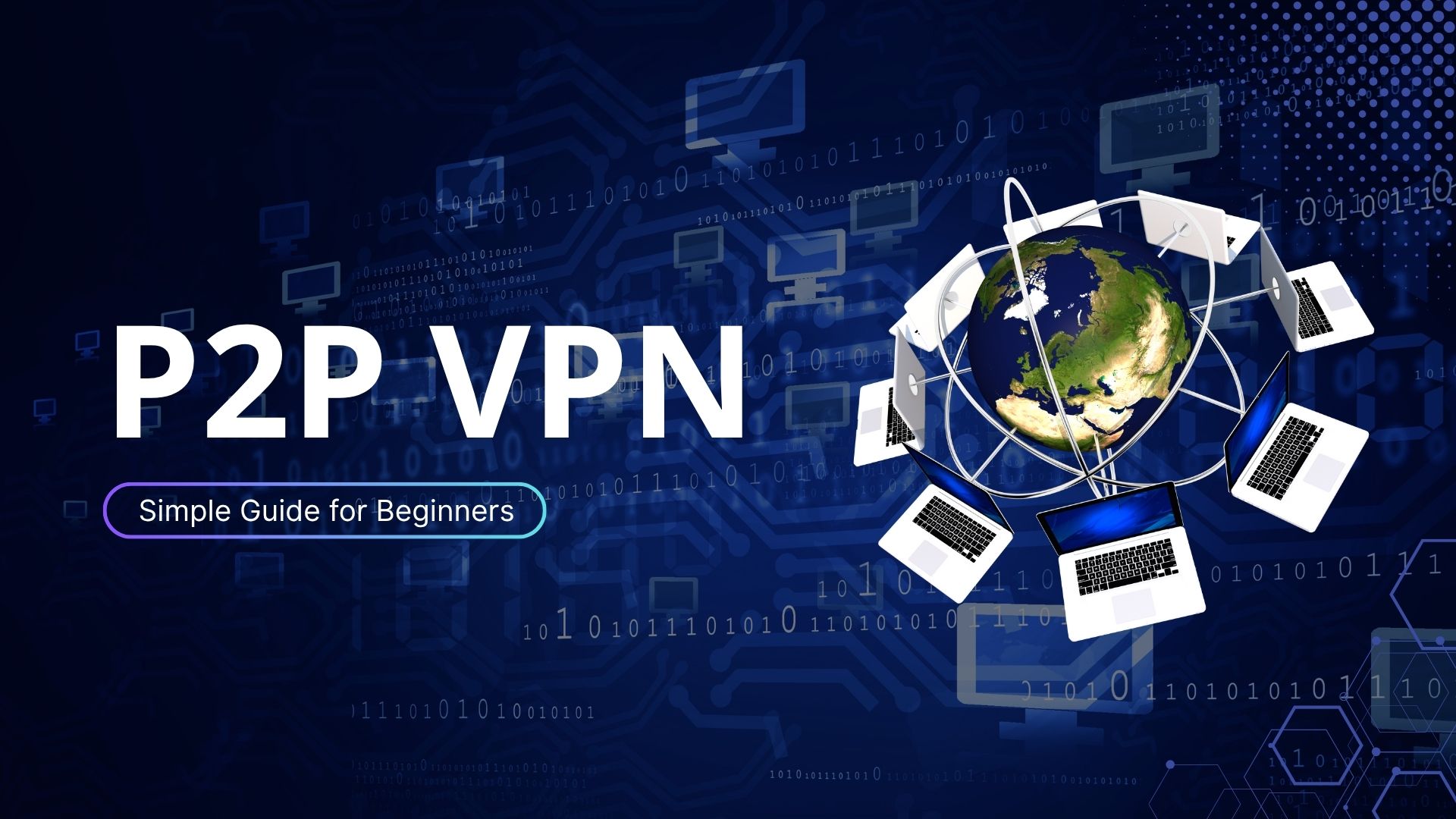
If you often download or share files online, you’ve probably heard of “P2P VPN.” But what is a P2P VPN? How is it different from a regular VPN service? And do you really need one? This article has everything you want and need to know about P2P VPNs!
Table of Contents
P2P Meaning: What is P2P?
Before we explain P2P VPN, we first need to understand what P2P is.
Normally, when you connect to the internet, your data goes through a central server. But P2P (peer-to-peer) works differently. There’s no central server. The network is the server.
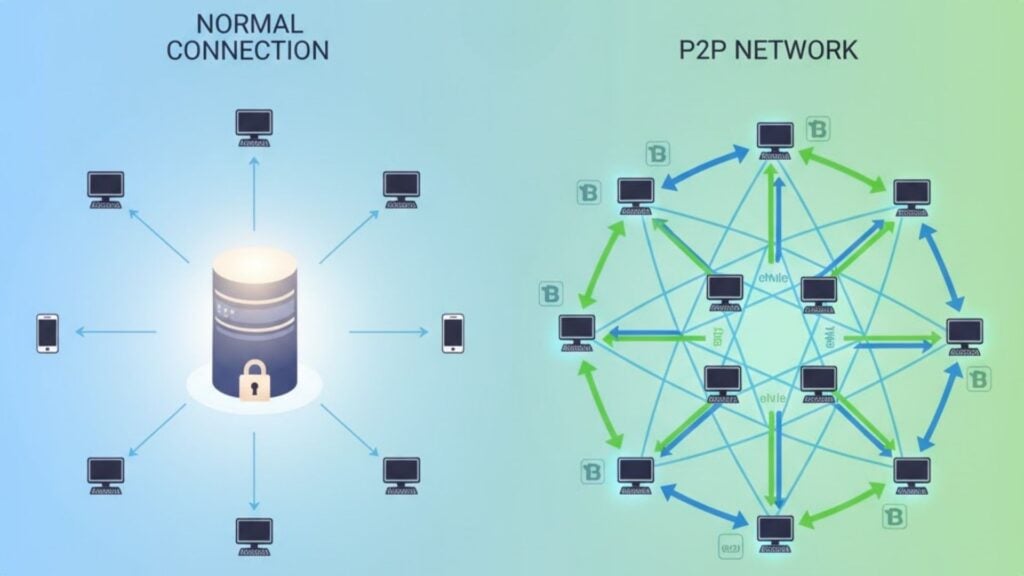
In a P2P network, every user is both a sender and a receiver. For example, when you use P2P apps like BitTorrent or eMule, you’re not downloading from one main server. Instead, you’re directly exchanging data with many people around the world.
This makes downloading faster and more efficient because everyone is part of the process. However, it also comes with two major problems:
- Your real IP address is visible to everyone.
- Your ISP can see that you’re using P2P, and may slow down your connection or monitor your activity.
In this situation, P2P VPNs come in handy.
What is P2P VPN?
The term “P2P VPN” can be a bit confusing because it has two completely different meanings online. One means a VPN optimized for P2P, and the other refers to a VPN built on a P2P network itself. Let’s clarify each one.
A VPN for P2P (Most Common Meaning)
This is what 99% of people are looking for. It refers to a standard VPN service that supports P2P file sharing (like torrenting).
Basically, it helps you with 3 main things:
- Hides your real IP address: Others can only see the VPN server’s IP, not your actual one.
- Encrypts your internet traffic: Even your ISP can’t directly see what you’re downloading or sharing.
- Improves stability and speed: Some VPNs even offer P2P-specialized servers or port forwarding for smoother performance.
In fact, when most VPN companies advertise “P2P VPN,” this is also usually what they mean: They allow P2P traffic and have servers optimized for torrenting.
A VPN that Is P2P
This is completely different and not very common. It refers to a decentralized VPN (DVPN), This is completely different and not very common. It refers to a decentralized VPN (DVPN), which means the VPN itself is built on a P2P network. Not quite clear? No worries, here’s a quick comparison:
- Regular VPN: You connect to a VPN company’s own server.
- Decentralized VPN: There’s no central server or single company. You (a peer) connect to another random user’s computer (another peer) and use their internet connection.
Simply put, every user’s device helps build the VPN network and passes encrypted data for everyone else.
While this sounds cool, it’s actually very risky. You have no idea whose computer you’re connecting to. Even worse, some peer networks have vulnerabilities that allow a stranger access to your home internet for something illegal, which could be traced back to you.
Should I Use a P2P VPN?
Like we mentioned before, most people should choose a regular VPN that supports P2P traffic, not a decentralized VPN. So, why do you need one? Here are the main reasons.
1. Hide Your Real IP Address
When you share files with P2P apps like BitTorrent, everyone in the group can see your real IP address. How to hide IP address? With a P2P VPN, your real IP is hidden and replaced with the VPN server’s IP address instead.
2. Encrypt Your Traffic
Without a VPN, your ISP can see everything you do online, including which websites you visit and what files you download. A VPN encrypts all your traffic, so your ISP only knows you are online, but not what you’re doing.
3. Avoid Throttling
Some ISPs don’t like P2P traffic. If they notice you’re downloading, they may slow down your speed. This is called bandwidth throttling, and that’s why your normal browsing can be fine, but downloads are ridiculously slow. A good VPN with obfuscation hides your P2P activity and makes it look like normal traffic, so your ISP won’t limit your speed.
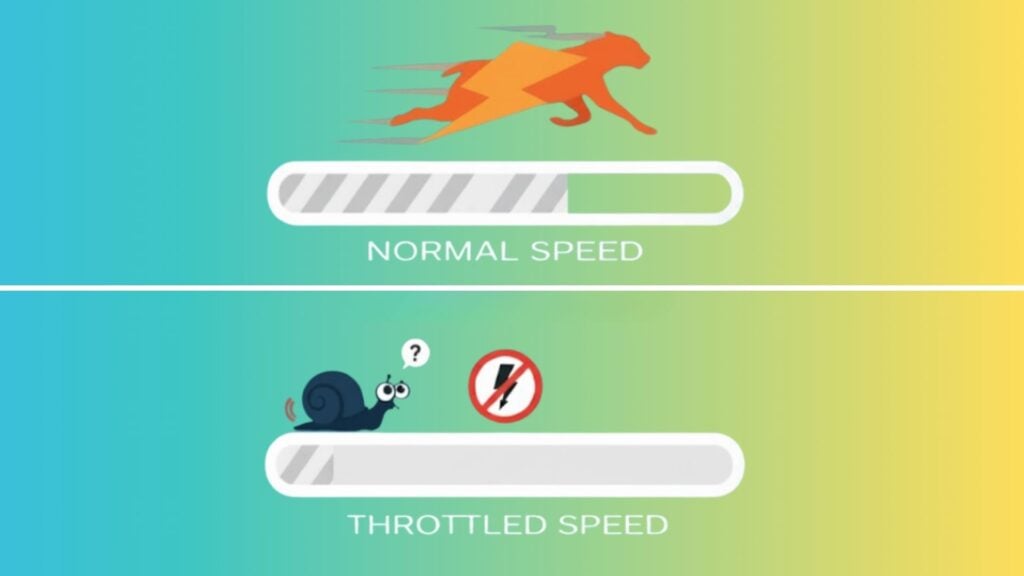
4. Access Blocked Content
Some countries, companies, or schools block P2P ports or don’t allow downloads. When you connect to a VPN, your internet traffic goes through servers in other countries and can get around geoblocking, so you can access restricted content again.
5. Stay Safe on Public Wi-Fi
Downloading with P2P on public Wi-Fi, like at airports, coffee shops, or hotels, can be risky. Public Wi-Fi often isn’t safe and can be easily hacked. A Wi-Fi VPN creates an encrypted tunnel for you. Even if a hacker is on the same Wi-Fi, it would be difficult for them to read or mess with your downloads.
6. Protect Your P2P Use
P2P technology itself is legal, and many open-source programs, game patches, or system images are shared this way. However, in some regions, copyright issues or misuse can lead to trouble. A P2P VPN protects your identity, making it harder for anyone to link these activities back to you.
A good P2P VPN gives you privacy, stable speed, and more freedom online. So, how do you pick the best VPN for P2P? Keep reading!
How to Choose the Best P2P VPN?
Not all VPNs allow P2P. Some block torrent traffic, while others are just too slow to use. If you want fast, private, and safe downloads, make sure your VPN has these features:
Factors to Consider
- Clearly Supports P2P: Pick a VPN that clearly says it allows P2P or torrenting.
- Fast and Reliable Speed: Some VPNs have special P2P servers designed for uploading and downloading. These servers are usually quicker, more stable, and have fewer connection drops.
- No Data Limits: P2P downloading uses a lot of data. Some VPNs, especially free ones, limit how much data you can use. Make sure your VPN offers unlimited bandwidth.
- Strict No-Logs Policy: Your VPN should not keep any of your activity. Check their privacy policy and confirm that it follows a zero-logs policy.
- Strong Encryption: Choose VPN services that use AES-256 encryption. This is a widely adopted encryption standard that is considered to have extremely high security.
- Complete Security Features: Besides encryption, your VPN should include basic protections like a Kill Switch, DNS and IP leak protection. These features prevent your data from leaking out if the VPN disconnects by accident.
Choosing the best P2P VPN will not only give you better download speeds, but will also keep you private and secure online the whole time!
Common Mistakes When Using a P2P VPN
Using a P2P VPN is a key step for safer file sharing, but a few simple mistakes can accidentally expose your real IP address. Here are some common ones and how to avoid them:
1. Forgetting to turn on the Kill Switch: Even if your VPN disconnects for just one second, your P2P client will instantly expose your real IP address. To prevent this, always turn on the Kill Switch in your VPN settings before you start downloading.
2. Not checking for IP or DNS leaks: Just being connected to a VPN doesn’t mean you’re totally secure. Leaks can still happen. Before you start a P2P download, always test your connection for IP and DNS leaks to make sure your real information stays hidden.
3. Using an unreliable VPN: Some bad free VPNs often log your activity, limit your data, show ads, or even share your bandwidth with other users—putting your privacy at risk. So, stick with a trusted, no-logs VPN instead.
4. Connecting to the wrong server: Some VPNs only allow P2P on certain servers. If you pick the wrong server, your downloads might be slower or your account could get restricted. For best results, choose a server clearly labeled for “P2P” or “Torrenting.”
5. Ignoring local copyright laws: A VPN can hide what you’re doing online, but it doesn’t make illegal downloads legal. Check the rules in your country and only download files that are legal where you live.
Conclusion
A P2P VPN is basically a regular VPN that’s optimized for P2P downloads like torrents. It keeps your P2P connections private and stable, so you don’t have to worry about IP leaks, throttling, or blocked content. In short, it makes file sharing safer and faster.
FAQ
Is P2P VPN legal?
Yes, using a P2P VPN is legal in most countries. However, downloading or sharing copyrighted files without permission can still be illegal. Always check and follow your local laws.
What is the difference between P2P and double VPN?
They serve different purposes. A P2P VPN is designed for secure file sharing between users, while a Double VPN routes your traffic through two VPN servers for extra privacy.
What is an example of a P2P connection?
The most common example is using BitTorrent to download torrent files. When you download a file, you aren’t getting it from one main server. You download pieces of the file from lots of other users at the same time.

